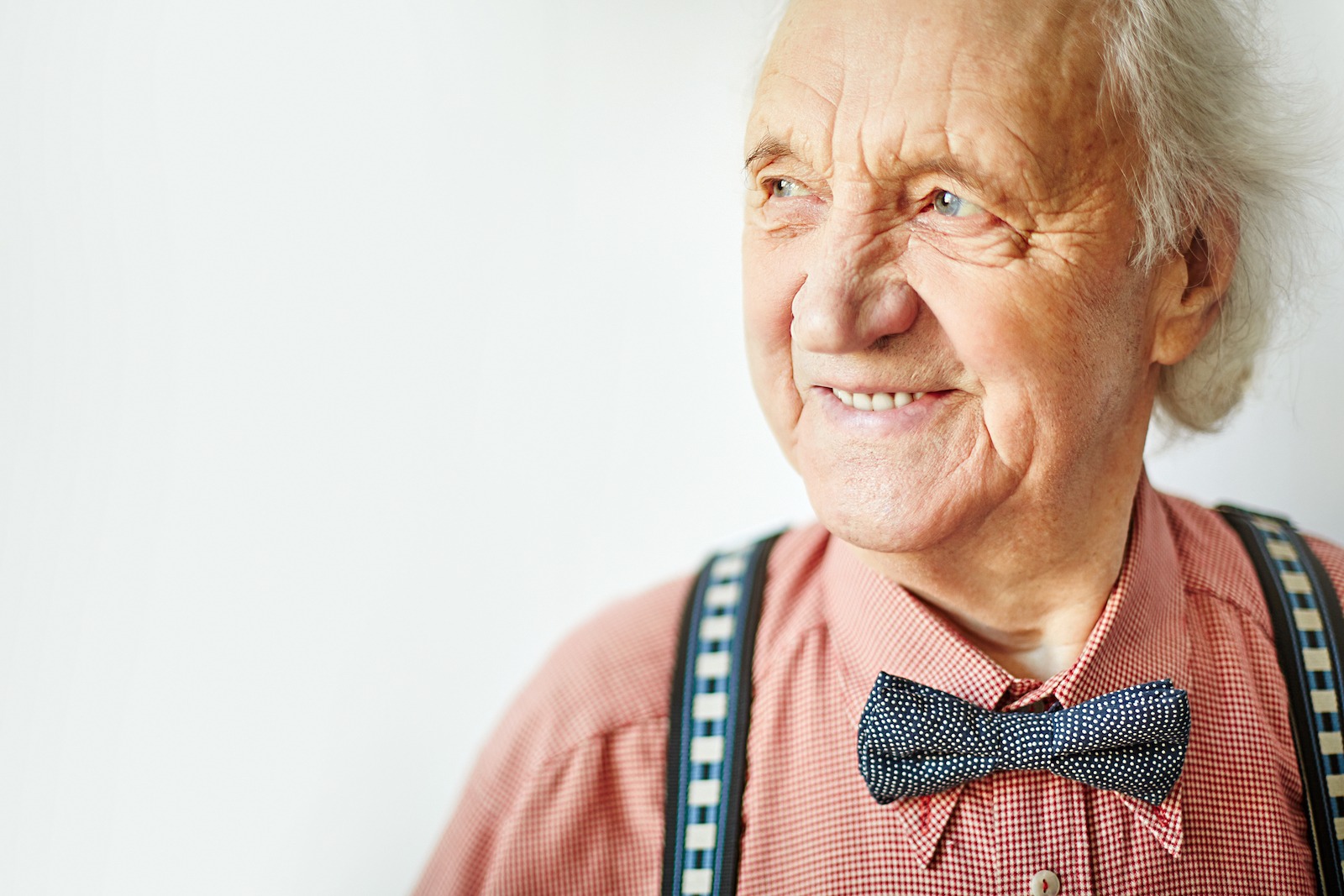In this clip from an edition of The FEARLESS Man Live seminar, Brian talks about what he learned from a woman in hospice care that separates those who are truly happy from those who are unhappy at the end of their lives.
Editor’s Note: This post was originally published in August 2019.
The small group of happy people who were nearing the end of thier lives who the woman worked with always went for what they wanted. And that mattered much more than whether they were always successful in those endeavors.
Goalcast’s Michael Leonard wrote a nice, concise article on this: “Top 5 Biggest Regrets of The Dying (And How You Can Avoid Them)”
The top regrets from the piece, with our own commentary in purple:
1. “I wish I had the courage to live a life true to myself, not the life others expected of me.”
This was the number one regret of the dying.
“Most people had not honored even a half of their dreams and had to die knowing that it was due to choices they had made, or not made. Health brings a freedom very few realize until they no longer have it,” wrote Bonnie.
How to avoid this regret
Be unapologetically you. Be selfish about your goals, dreams, and desires. You only get one life.
Don’t waste another second trying to live the life that everyone “thinks” you should be living. Choose to believe in you and go after your dreams and ambitions.
Have the courage to quit the job you hate or leave the friendships that are dragging you down. At the end of the day, you should be able to look yourself in the mirror and say, “I’m proud of you.”
This is right in line with everything we teach and how we coach at FEARLESS. This kind of “selfishness” is what we call “Healthy Selfish.” And being “unapologetically you” goes way deeper than your outward, big actions in how you live and what you go after in life. In every moment interacting with people, how much are you really, truly being who you want to be and speaking from your gut vs putting on little (or big) facades to try to have people see you in a certain way, avoid rejection, avoid tension, and etc?
2. “I wish I hadn’t worked so hard”
Bonnie notes that most of her patients with this regret were men as they were from an older generation of being the breadwinners, but some women expressed this regret as well. “This came from every male patient that I nursed. They missed their children’s youth and their partner’s companionship.”
How to avoid this regret
Know what you are trying to achieve with your career or business. Don’t get caught up in the rat race of trying to outwork everyone by putting in 80 hour weeks. Sure, you might need to do this at times, but don’t make it a habit.
Remember that you need to still need to have downtime and off days. Focus on spending as much time with the people that matter most.
What’s most important to you in life? Write it down, prioritize, and continually check in with those things. Your career may well be one of them, but make sure you stay cognizant of the other ones and find time for them.
And as Brian discussed in a recent video (below), work smarter, not harder and longer.
3. “I wish I had the courage to express my feelings”
In her study, Bonnie found that people suppressed their feelings in order to keep peace with others. As a result, they settled for a mediocre existence and never became who they were truly capable of becoming. She believes this led to illnesses relating to the bitterness and resentment they carried as a result.
How to avoid this regret
Never hide your feelings with people, especially the ones you love most. While it’s easy to not want to hurt feelings or create uncomfortable situations, this habit can be dangerous. Not only for your relationships and success but also your health.
Choose to express yourself with others so your feelings are always known.
Your raw honesty and vulnerability – your integrity with yourself and your true feelings and your willingness to share them without attachment to outcome – is your power.
4. “I wish I had stayed in touch with my friends.”
“Everyone misses their friends when they are dying,” wrote Bonnie. She said that patients would not truly realize the full benefits of old friends until their dying weeks. By then, it was often times too late to track friends down.
How to avoid this regret
Luckily, social media makes it easier than ever to stay in touch with friends. While social media is great, don’t be above an unexpected text or call to an old friend. Reach out to one or two people each week with a nice email, text or call to stay connected.
Express your gratitude to these people regularly so you can continue your lifelong relationships as you get older.
Everything comes through people. A life without strong connections to other humans can be a very lonely one.
5. “I wish I had let myself be happier.”
The final regret is about patients not letting themselves be happy enough.
With all the stresses of adult life, it’s easy to feel like a hamster on a wheel. Pay the bills, work, live for the weekends, and repeat each week. Even if you are in this cycle, know that you can be happy whenever you want.
Happiness is a choice.
“Many did not realize until the end that happiness is a choice. They had stayed stuck in old patterns and habits. The so-called ‘comfort’ of familiarity overflowed into their emotions, as well as their physical lives. Fear of change had them pretending to others, and to themselves, that they were content, when deep within, they longed to laugh properly and have silliness in their life again.”
How to avoid this regret
Never forget that happiness is a choice. You are 100% responsible for your life and your happiness. Choose to be happy no matter what. Sure, you will have bad days but don’t make a bad day turn into a bad week, month or year.
Know how to get yourself out of a funk and always choose to be happy. You only get one life, make the most of it by choosing happiness so you can experience life to the fullest.
A very important caveat here is not to force happiness where it’s not truly there or resist heavier emotions. Otherwise, it won’t be real and you’ll really still be unhappy deep down. You want to face, truly process, and let go of the heavier emotions:
Another article on that: Clinical Psychologist: Stop “Thinking Positive” and Be Real
Read the full Goalcast piece here.









